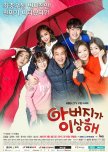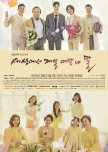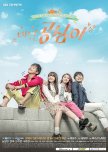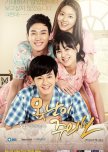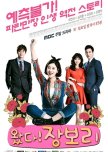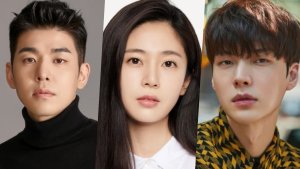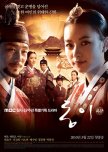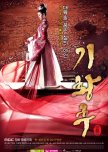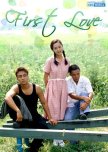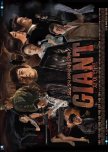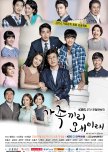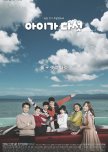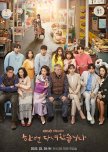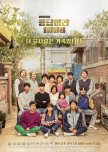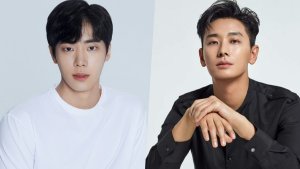 Choo Young Woo in Talks to Star With Joo Ji Hoon in "Severe Trauma Center: Golden Hour"
Choo Young Woo in Talks to Star With Joo Ji Hoon in "Severe Trauma Center: Golden Hour" 25 years ago, the Haesung Group lost their granddaughter Choi Eun Seok. The girl was found and raised by Seo Tae Soo as one of his twin daughters, Seo Ji Ahn and Seo Ji Soo, They grew up rich, but their father was bankrupt, and they had to experience the hard life of a dirt spoon. Ji Ahn is now a contract worker at Haesung Group who would do anything for a job, while Ji Soo is an air-headed part-timer who has a one-sided crush on Sun Woo Hyuk. Unknown to her that Woo Hyuk was in love with Ji Ahn in high school. Choi Do Kyung is Haesung Group's oldest grandson. He is gentle and kind, but being too good yet still single makes his employees spread weird rumors about him. He meets Ji Ahn in a car accident and comes to know her sad situation, but his biggest shock is when his mother reveals that his lost sister is Ji Ahn. Edit Translation
- English
- Português (Brasil)
- Română
- Español
- Native Title: 황금빛 내 인생
- Also Known As: Hwanggeumbit Nae Insaeng
- Screenwriter: So Hyun Kyung
- Director: Kim Hyoung Seok
- Genres: Business, Comedy, Romance, Drama
Cast & Credits
- Park Shi Hoo Main Role
- Shin Hye Sun Main Role
- Seo Eun Soo Main Role
- Lee Tae Hwan Main Role
- Lee Da InChoi Seo Hyun [Do Kyung's sister]Support Role
- Lee Tae SungSeo Ji Tae [Ji Ahn's elder brother]Support Role
Reviews

Weekend family drama, progressively challenging the concept of becoming/living as an ´adult´
“My Golden Life” is one of those KDramas that have been writing drama-history in South Korea. It is considered a 'national' series – popularity increased rapidly, the number of viewers doubled during the broadcast and towards the end, almost half of all nationwide TV audience during the weekends, while “My Golden Life” was broadcast, watched this series."My Golden Life" is a family drama, that doesn't just get lost in family clichés, Makjang and RomCom, but instead explicitly addresses some critical contemporary issues. Additionally, given attitudes and convictions are boldly deconstructed along the way. Thus, "My Golden Life" is a rather progressive family drama, involving also the 'quite new' concept of making personal life decisions despite (and in opposition to) family interests. In addition, more than one protagonist is questioning his/her life decisions or is forced to dealing with 'failure' (up to 'depression' as a result of learned helplessness), which is also quite progressive. Whether rich or poor, such issues likewise hit any income classes - in “My Golden Life”, too. In addition, there are current long-running topics such as the (lack of) work-life balance, discrimination because of social status, and the shame of divorce, as well as the increasingly sensitive issue of 'age'.
Ultimately “My Golden Life” is progressively challenging the concept of maturing in the sense of making my own, accountable decisions and thus becoming/living as an ´adult´. What does it mean, what does it need to be an 'adult'? ´Adult´ in the sense of having grown out of the familiar nest and being able to fly with my own wings? In the sense of being challenged to apply what I have learned in my own, individual manner? Is it allowed? Actually desired? Even wanted?
Notably gratifying and astonishing: Throughout the series, practically all of the divers family members go through their personal maturing processes against the background of various contemporary social issues. Many dramaturgical motifs may be familiar, but you can be sure that sooner or later everyone will be challenged with their attitudes and decisions being on trial. “My Golden Life” is not about stumbling through life with a social reptilian brain in obvious stimulus-response pattern. And it is not about by all means controlling the environment with the arrogant mindset of absolutist power fantasies. "My Golden Life" is intelligently and systematically deconstructing the usual set screws for critical life decisions (and dramaturgical plot developments.) In the end, almost every protagonist gets challenged and in the long run actually they all come to their individual, sometimes astonishingly mature, honest and even wise reassessments and re-decisions. This is (at least in this KDrama) possible, permitted, actually prerequisite.
Strikingly symbolic to deconstruction processes of social and individual assumptions throughout the story, ´gold´ is a metaphor for the estimation and valuation of an individual life. Its meaning and value is changing throughout the KDrama, parallel to the transformation processes of the protagonists... Most of the characters initially have the conviction that money (and associated with it: status) is the prerequisite or guarantee for happiness and a worthwhile, precious life... (as on the other hand the lack or loss of money is the reason or the cause of unhappiness and equivalent to a nugatory life.) However, most of them realize over the course of story that a ´golden´ life is not necessarily one that is successful, prosperous and meaningful because of a lot of money. In fact, an elitist, privileged life - being born with a ´golden spoon´ in the mouth - eventually comes with a ´golden cage´, too... Rather, a ´golden´ life is cordial, substantial and radiant with accountability and authenticity.
Within turbulent relationship dynamics (including a bit of Makjang-style topping when it comes to plot development) the 'impoverished middle class' and the 'dirty rich Jaebeol clan' are cleverly juxtaposed against each other, thus almost offensively confronting with the exaggeration of social class-affiliation and questioning traditional mindsets; additionally, full of wit contrasting submissive obedience and self-confident rebellion. Meanwhile, a dubious, arrogantly patronizing 'Noblesse oblige' virtue is craftily criticized, too.
“My Golden Life” is sometimes funny, sometimes intelligent, sometimes outrageously provocative, sometimes infuriating, sometimes emotionally serious, sometimes touching and sometimes downright grotesque. Being set as a family weekend drama, it is supposed to be easy to digest… yet, at the same time, the KDrama is consistently keeping its unabashed finger (gently, yet persistently) on the social scrapes, quirks and deep wounds, too. An astonishingly felicitous, ambitious balancing act. Overall, “My Golden Life” isn´t long-winded, even with 52 episodes. You may as well give it a try.
P.S.:
'Reassessment' seems to be the greater moral of the story.
Meaning: Traditional structures, rules, proven patterns and given orders may be all well and good. They may give orientation and set a direction in life. They provide a certain range of tools and know-how on how you can meet the challenges of life. But ultimately, in each individual case, it is still indispensable to carefully consider the appropriate application and decide for yourself what actually should be and could be accomplished. What is it, that I want? What is it, that I can do? What is it that I think is right? And what is it, that I am willing to supply?
At the end of education and apprenticeship usually there is a form of diploma or master's degree – not for mere copying, but for suitable, at best innovative application and enhancements. And in "My Golden Life" there are quite a few characters truly having earned their award... each in their own way. Eventually, it won´t do to simply adopt what others suggest, would have done or did before. It is all about individual solutions. Traditional lifestyles and attitudes are put to the test and are systematically deconstructed - voluntarily or involuntarily. In the end, the individually appropriate reassessment and authentically fitting solution does not necessarily have to lead to an easy or obvious decision...
"My Golden Life" is thus also giving a lesson in emancipation, too - in the original Latin and also in the more modern sense. Initially, Latin “emancipatio” was the “release of the son from paternal power”. In a broader sense: the child has grown or the student has been educated, so they can hold themselves accountable for their own life tasks and work obligations and thus take responsibility and reflect on their achievements accordingly. Additionally, in a modern, more general sense, emancipation is freedom from discrimination based on group, sex or class membership…

I first watched this drama without knowing anything about it except for the cast. I heard Uee was offered the role first as Seo Jian but declined, and no matter how much I love Uee I'm so glad she did decline because OMG SHIN HYE SUN IS GOLD. I really love her acting style. She's an outstanding actress and I cannot imagine anyone else as Seo Jian. The role was made for her. period.
However, I would like to say that I'm not the biggest fan of the love line between the FL and ML. I might even say that I like them better when they were siblings. Not too fond also of the relationship of the second leads. I don't know why, but no matter how cute they were together something felt off for me but I can't seem to point my finger on it. Actually my favorite couple in this series is Seo Jiho and Choi Seohyun. They just look so cute together and they grew their relationship more naturally as they spend more time together. I find it very unfortunate that they ended up as just friends but at the same time I understand also why it must be done as it will just be so wrong if they ended up together because first they will be at the same boat as their older siblings and second they will be in-laws when Seo Jian and Choi Dogyeong gets married. My second favorite couple here in this series is actually Choi Jaesung and Noh Myeonghui because even though they did not have the best relationship during their marriage you can still see that they did marry for love and they still have a bit of respect towards each other during their time together. I personally believe that their greed got the best of them sometime during their marriage and that's where it started to go wrong BUT they still did love each other they just had different priorities in life but I'm glad they found their way back. I mean it's hard to believe that they didn't love each other when you have three children together :)
As I've mentioned earlier, I believe depression was part of the theme of this drama also. Throughout this series, there were three characters who had depression (actually more but will focus on these three): Choi Jaesung - Andropause (male menopause); Seo Jian - Suicidal; Seo Taesu - passive suicidal.
Out of these three, Choi Jaesung was the mildest case, however it only meant that if it wasn't prevented properly there was a possibility that it could've worsen. I deeply empathize with Seo Taesu, as in his case it was built up over the years after his family started treating him different due to the change in their financial position. It was actually sad to see that because he was so down that he wanted to die but in no means wants to kill himself. And Lastly, Seo Jian. She did attempt to commit suicide and I'm glad she did recover fast. It goes to show that all of us are vulnerable it's just that others have a stronger facade than most. Out of all the family dramas I have watched, this drama had the most realistic depiction of depression. So realistic in fact that I think they should've placed a trigger warning for the audience.
Overall, it was fun watching this drama. The ending was satisfactory, it was realistic as I think after everything that have happened they all needed time to heal their own wounds.
PS: One of the worst grandpas ever in a series: Noh Yangho!!!
PPS: Other mental issues I've observed in this drama:
Dependent Personality - Noh Myeonghui, Choi Seohyun
Inferiority Complex - Seo Jisu, Noh Jinhee
Manipulative behavior - Noh Yangho
Victim Mentality - Noh Myeonghui
I believe there are more but I'll stop here for now :)
Recent Discussions
| Title | Replies | Views | Latest Post | |
|---|---|---|---|---|
| I loved Golden Life by Pilansb | 3 | 0 | patzeram Mar 7, 2023 | |
| All couples in My Golden Life (spoilers) by iwatchgooddrama | 2 | 201 | Chloe Feb 3, 2018 | |
| This is a hungry drama...out to eat everyone! by ajumah | 1 | 259 | userbmc Nov 12, 2017 | |

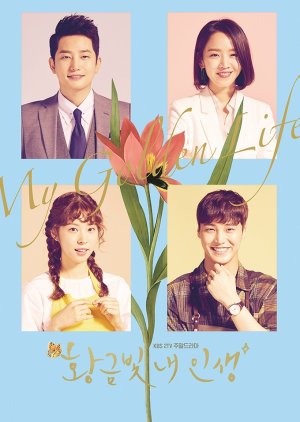






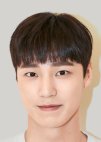

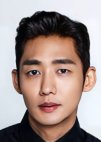
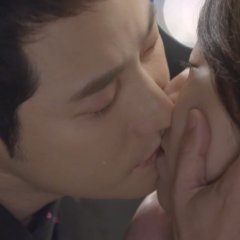
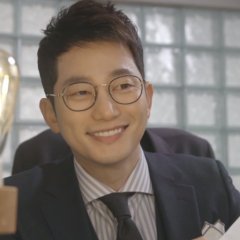

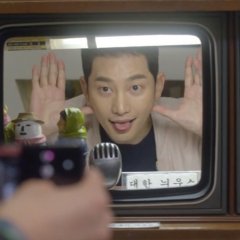
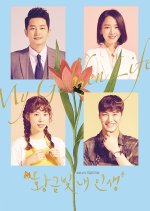
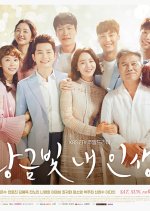
 1
1